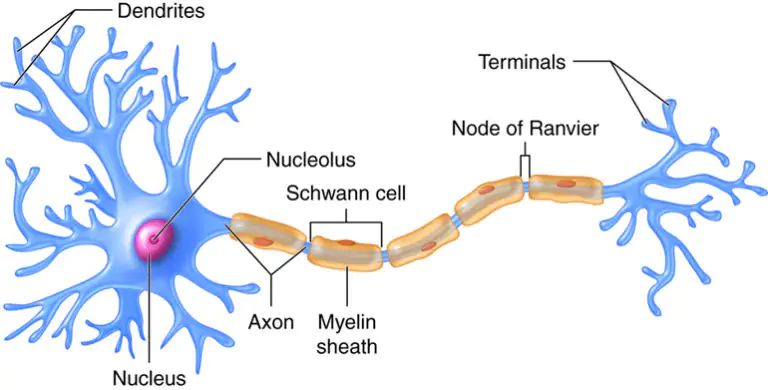Introduction
Researchers have shown that brain activity during sleep—especially the production of regular brain waves—is critical for removing waste products. This mechanism may represent new ways to minimise neurodegenerative diseases and improve sleep efficiency, thereby reducing the need for longer sleep periods.
The results may open the door to novel approaches to treating Alzheimer’s and other neurological conditions.
Sleep presents a dilemma. The seeming calmness of it contrasts with the frenzied activity of the brain. The brain is far from dead, even though it is still nighttime. A heightened state of brain cell activity is observed during sleep when brain cells release bursts of electrical pulses that accumulate into rhythmic waves.
Calm, rejuvenating sleep is linked to slow brain waves. Furthermore, researchers at St. Louis’ Washington University School of Medicine have discovered that when you sleep, brain waves aid in the removal of waste from your brain. Individual nerve cells work together to generate periodic waves that push fluid through the brain’s thick tissue, cleaning it as they go.
These neurons function as tiny pumps. The brain’s fluid flow and debris clearance are powered by synchronized neuronal activity, according to first author Li-Feng Jiang-Xie, PhD, a postdoctoral research associate in the Department of Pathology & Immunology.
“If we can enhance this mechanism, we may be able to delay or even stop neurological diseases like Parkinson’s and Alzheimer’s, which are caused by an accumulation of excess waste in the brain that leads to neurodegeneration, such as junk proteins and metabolic waste.”

Brain Cells and Waste Removal
In order to construct the dynamic networks necessary for memory creation and problem solving, brain cells coordinate thoughts, feelings, and bodily actions. Brain cells, however, need fuel to carry out such energy-demanding functions. They produce metabolic waste as a result of consuming nutrients from the food.
“The brain’s ability to eliminate metabolic waste that can accumulate and worsen neurodegenerative illnesses is crucial,” said Jonathan Kipnis, PhD, a BJC Investigator and the Alan A. and Edith L. Wolff Distinguished Professor of Pathology & Immunology. The paper’s senior author is Kipnis. We already knew that during sleep, the brain starts a purging process to get rid of trash and poisons that have accumulated while we are awake. However, we were unaware of how that occurs. These results may help us identify tactics and possible treatments to eliminate harmful waste more quickly and before it has a chance to cause serious harm.
The Mechanism of Brain Cleaning
Still, clearing the thick brain is not an easy feat. The fluid that surrounds the brain, known as cerebrospinal fluid, accesses and negotiates complex cellular networks while collecting toxic substances. Contaminated fluid must cross a barrier as it leaves the brain in order to enter the lymphatic veins in the dura mater, the outer layer of tissue that surrounds the brain beneath the skull. However, what drives the fluid’s entry, passage through, and exit from the brain?
Jiang-Xie noted that by examining the brains of sleeping mice, the researchers discovered that neurons propel cleaning efforts by coordinating the firing of electrical impulses to produce rhythmic waves in the brain. They discovered that the fluid flow is propelled by these waves.
To prevent neurons in some areas of the brain from producing rhythmic waves, the study team muted certain brain regions. Without these waves, stored waste could not escape the brain tissue, and new cerebrospinal fluid could not pass through the silent parts of the brain.
Improving the Cleaning Process in the Brain
According to Kipnis, “one of the reasons we sleep is to cleanse the brain.” And maybe we can sleep less and still be healthy if we can improve this purification process. Not everyone benefits from getting eight hours of sleep every night, and not getting enough sleep has negative effects on health. Mice with healthy brains that are genetically programmed to sleep less have been the subject of several studies. Is it because their brains are able to remove waste products more effectively? Is it possible to aid those with insomnia by improving their brain’s cleaning capacity so they can function with less sleep?
During sleep cycles, there are changes in brain wave patterns. Notably, higher-amplitude brain waves travel farther and faster than shorter ones. These days, researchers want to know which parts of the brain are more susceptible to waste buildup and why neurons fire waves during sleep with different rhythms.
Neurobiologist Jiang-Xie said, “We believe the brain-cleaning process is similar to washing dishes.” For example, you begin by wiping the plate in a big, steady, rhythmic motion to remove any soluble waste that has splattered on it. To get rid of especially sticky food waste on the plate, you shorten the range of action and quicken the motions. Your hand motions will fluctuate in volume and rhythm, but the overall goal will always be the same: clearing plates of various waste materials. Perhaps the brain modifies its cleaning strategy based on the kind and volume of trash.
Conclusion:
The finding that the brain cleanses itself through uniform waves of brain function when we sleep sheds new light on the requirement of restorative sleep for the brain’s health. According to the study, these waves help the brain clear waste material, which may be used to stop or halt the onset of neurodegenerative diseases such as Parkinson’s and Alzheimer’. Comprehending and enhancing this purification process has the possibility of leading to the development of modern medicines and treatments that improve brain function and sleep efficiency.
FAQ's
Q: How do brain waves during sleep affect neurological health?
A: Brain waves produced during sleep help to remove metabolic waste and poisons from the brain, which improves neurological health. Improved cleaning systems might help avoid neurodegenerative disorders.
Q: Can improving sleep efficiency reduce the risk of Alzheimer’s and Parkinson’s?
A: According to research, optimising the brain’s purification process during sleep has the ability to postpone or prevent the onset of neurodegenerative disorders such as Alzheimer’s and Parkinson’s by minimising waste product buildup.
Q: What implications does this research have for insomnia and sleep disorders?
A: comprehending that how the brain eliminates waste material during sleep may help develop remedies that increase the effectiveness and quality of sleep, which may assist those who suffer from insomnia and other sleep disorders by increasing the brain’s capability to eliminate waste material even during a short sleep period.
Q: How can individuals promote brain health and sleep quality?
A: While additional research and studies are needed, improving good sleeping routines and lifestyles may help improve brain health. Emphasising regular sleep patterns, maintaining a favourable sleep environment, and regulating stress levels may all help to improve sleep and perhaps increase the brain’s natural cleaning processes.






Thank you I have just been searching for information approximately this topic for a while and yours is the best I have found out so far However what in regards to the bottom line Are you certain concerning the supply
Your posts always provide me with a new perspective and encourage me to look at things differently Thank you for broadening my horizons
You welcome!
Your posts always provide me with a new perspective and encourage me to look at things differently Thank you for broadening my horizons